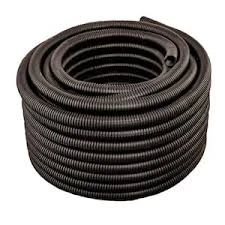plastic cable carrier
Understanding Plastic Cable Carriers An Essential Component in Modern Industries
In today's fast-paced industrial landscape, the need for efficient and reliable cable management systems has become increasingly vital. Among the various solutions available, plastic cable carriers—also known as cable drag chains—have emerged as a popular choice due to their lightweight, durability, and versatility. This article aims to explore the significance, advantages, and applications of plastic cable carriers in modern industries.
What are Plastic Cable Carriers?
Plastic cable carriers are protective modular structures designed to guide and manage various types of cables, hoses, and wires. Typically constructed from high-quality plastic materials, these carriers provide a safe pathway for flexible cables and hoses, which are crucial in dynamic environments where movement is a common factor.
Advantages of Plastic Cable Carriers
1. Lightweight and Flexible One of the most significant advantages of plastic cable carriers is their light weight. This allows for easy handling and installation, which is particularly beneficial in automated and robotic applications where reducing overall weight is vital for performance. The flexibility of plastic carriers also enables them to accommodate various bending radii, making them suitable for numerous configurations.
2. Corrosion Resistance Unlike metal carriers, plastic options are inherently resistant to corrosion, making them ideal for harsh environments where exposure to chemicals, moisture, or extreme temperatures occurs. This resistance ensures a longer lifespan, reducing the need for frequent replacements and ultimately lowering maintenance costs.
3. Noise Reduction The design and material of plastic cable carriers also contribute to noise reduction during operation. This is particularly advantageous in settings where quiet operation is necessary, such as in laboratories, hospitals, or offices.
4. Customization Options Manufacturers of plastic cable carriers often provide customization options, including different sizes, shapes, and colors. This adaptability allows businesses to tailor solutions perfectly to their specific needs, ensuring efficient cable management that seamlessly integrates into existing systems.
plastic cable carrier

5. Minimized Wear and Tear Plastic carriers are designed to protect cables and hoses from wear and tear. They prevent abrasion and tangling, which can lead to system failures, interrupted operations, and potential safety hazards. By keeping cables organized and secure, these carriers help maintain operational efficiency.
Applications of Plastic Cable Carriers
The versatility of plastic cable carriers allows them to be utilized effectively across numerous industries. Here are some common applications
- Automated Machinery In manufacturing facilities, plastic cable carriers are critical in managing the extensive wiring associated with automated systems. They help organize cables in conveyor belts, robotic arms, and other machinery.
- CNC Machines Computer Numeric Control (CNC) machines rely on precise movements, and plastic cable carriers play a crucial role in maintaining the integrity of electrical connections during operation.
- Medical Equipment In the medical field, plastic cable carriers protect cables used in diagnostic machines and surgical equipment, ensuring functionality and safety.
- Entertainment and Lighting In the entertainment industry, they are used to manage cables in lighting rigs and sound systems, facilitating easy setup and teardown for events.
Conclusion
Plastic cable carriers are indispensable components that offer significant advantages in cable management across various industries. Their lightweight, durable construction, combined with resistance to corrosion and noise, makes them suitable for a wide range of applications. As industries continue to evolve and demand more efficient solutions, the role of plastic cable carriers will undoubtedly grow, highlighting their importance in modern engineering and technology practices. Investing in high-quality cable carriers can lead to increased operational efficiency, enhanced safety, and long-term cost savings, ultimately benefiting the overall productivity of organizations.








